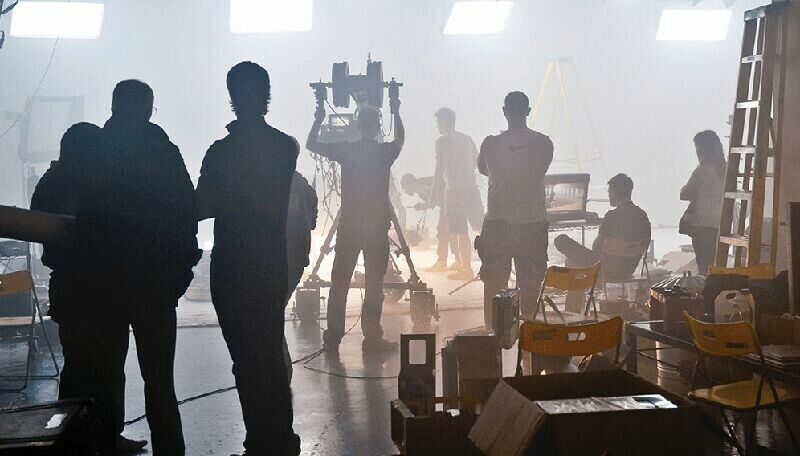
Hey guys, it's Daniel the filmmaker here!
Following here, is what Master film director Ridley Scott said, while doing the film commentary for Alien:
"As a director, you've just got to stick to your guns! Cause every step you make, everybody is Doubting Thomas. But that's where you have to earn your way.
And I wonder how many people fail cause they can't push their point home and they can't get quite what they want.
Look, nobody respects you later for having been a nice guy... You must get it! You have to get it! Because you you're going to wear what you got... forever.
You can be very unpopular on the route. But if you're right, everything is forgiven."
No half measures. No sugar-coating of any kind. It's very brutal and direct.
So, my question for you is this:
As a filmmaker or director, how far can you push it on set, so that you may still get what you want, without disrupting the overall harmony and efficiency of it?
What is the threshold you're not supposed to step over? The limit you must not go beyond? The "point of no forgiveness" shall we say?
And what are the most common mistakes one can make, not so much out of arrogance and ego, but out of an excess of motivation and anxiety, in wanting to make things go your way in any way possible... especially if it's your first or second feature, and you know how much you've got to lose and that you may never have another chance at it??
Thanks a million for your feedback guys... You absolutely rock!!



1 person likes this
Hey Dan buddy I love Ridley Scott, how are ya?
3 people like this
I agree with Ridley Scott. First you need to remain professional, but frankly I've been on set when directors had to get right up and personal with some crew before they would get any cooperation. Michael Mann on Ali had to literally take the camera away from the operator/DP because the guy simply was acting like he didn't understand English (he did, I don't know what his problem was). Rob Reiner literally had to embarrass and chew out a camera operator before the man would pay attention to his job - he was ruining the shot with his inattention. Common mistakes are - not being professional, not recognizing when someone has done a good job, failing to say thank-you, accepting less than the best a crew member has to offer (especially creative keys and talent). On my sets, I work with anyone who is working with me and trying their best. Because we are, after all, trying to be a creative family who supports each other and makes amazing art. I am very patient with these people but of course work has to be done correctly and well and within limited time. So sometimes you have to move people around. On the other hand, if anyone is not cooperative or screws up on purpose or interferes with other people's tasks - they are gone, zero tolerance, no questions asked, and put on a permanent do-not-hire-do-not-recommend list. Having said that, if you keep things cordial and professional, paying attention to everyone's actual roles, issues on my sets are very, very few. I don't know if that really answers you question, but I think it's my attitude.
1 person likes this
Be professional, polite, and collaborative, but get what you want, within reason . . . Because in the end, what you don't want is to be at your premiere and be tormented by thoughts of "I should of" or "I could of" . . .
2 people like this
Hi guys, I´m a filmmaker from Brazil and learned my craft when I became a PA in commercials and right after began to make my own shorts.
You can hear the comments from many great filmmakers and they all wil be great... but nothing teaches you more then the experience in a film set. Knowing WHY some things are needed and who's the right person/function to do it. Depending the size of the project, you'll need more or less peoplo to hepl you w/ your dream!
To get resolts, you got to be prepared. Have a clear idea of your shooting day. But -- You have to be a nice person first to have the real respect from your partners in crime!
You have dreamed a shot, the scene -- and NOW you´re going to be rude to people who´s helping with your dream? If you want to make a movie, make it with respect to your cast and crew, if you have their confidence, the'll go throgh hell w/ you if need!
Have a great weekend everyone!!
2 people like this
Shadow - I think you & I are cut from the same cloth.
1 person likes this
Always be a good leader. It’s not just being nice. It’s being prepared. It’s making sure your preproduction is solid so people know exactly what’s expected. If someone then still can’t do it, it doesn’t benefit you to ridicule them in public or lord your vision over them. Do your job and make sure they understand the vision you want. Ask yourself what you could do to make sure everyone is on the same page.
1 person likes this
I think filmmakers/directors should be ready to explain the scene they see in their head and explain why it is preferable. Not that it is a meritocracy but rather from a sense of how it fits better. Years ago, a short biographical play of mine was selected in a competition. The director - new to the game- did not like the ending and insisted on her comical idea that made nonsense of the drama as the audience was left baffled. In that instance, I should have stood firm.
Billy Kwack
Love him too Billy... He's actually one of my main inspirations.
As for me, same old, same old... Hard work, as always!
Gerry Ibarra
Great point there Gerry!! Succint and on-the-nose, but straight to the heart of the post. And yes, that is absolutely something I'd want to avoid.
2 people like this
Shadow Dragu-Mihai, Esq
"Common mistakes are - not being professional, not recognizing when someone has done a good job, failing to say thank-you, accepting less than the best a crew member has to offer (especially creative keys and talent). On my sets, I work with anyone who is working with me and trying their best. Because we are, after all, trying to be a creative family who supports each other and makes amazing art. I am very patient with these people but of course work has to be done correctly and well and within limited time. So sometimes you have to move people around. On the other hand, if anyone is not cooperative or screws up on purpose or interferes with other people's tasks - they are gone, zero tolerance, no questions asked, and put on a permanent do-not-hire-do-not-recommend list."Amazing contribution Shadow!! Thank you!
1 person likes this
Awesome Dan, brother
2 people like this
I agree in general @Shadow. Crew need to work together in unison to do their best on the day albeit some of them might get it wrong first couple of takes. A film is a “Third Entity” not yet born with no perfect written in stone plan to perfect it (yeah we plan and plan but actual execution when it happens is never exact.) With regards how far to push as director, leadership is expected and crucial and one has to enthuse positively at perfect delivery or constructively such as do improvisation, or use the what if? or same take again but let’s try this another way or re block the whole scene entirely so actors are suddenly in another place in their mind and a million other ploys . A director should work until their desire is met to best serve the job in hand BUT never make it “personal” with any of the crew. A certain amount of artistic conflict may happen on set due to creative passions rising about concern for the film which I nickname “fire in the belly" yet this can fuel a positive result. But @Shadow is right insubordination either for personal gripe or not being interested in the work in hand should never be tolerated.
2 people like this
Conducting extensive research throughout the project allows all cast and crew to uncover potential unknowns. Web sites like Stage 32 offer extensive resources of these unknowns and make them user friendly and offers teachable opportunities that allow staff to learn and become certified if necessary.
Great point @Tasha Research in all areas is key at every stage, even on the day, there is no point in time when a project should become set in stone. It's malleable until final cut.
Tasha Lewis
Of course Tasha, I agree that research is an essential process for any film project... But that sometimes won't prevent bad or unpredictable stuff from happening on set. And, I believe a filmmaker should be ready to adapt to any negative or unusual situation in front of him, and use a firm hand to deal with it, if it's needed.
My comments were based on my experience running a business (Dance and Foreign Languages for Young People) for 16 years. Each day and class were unpredictable. So my trunk carried whatever I needed to ensure whatever the daily circumstances were, I got the job done. Working with ages 2 and up, always presented interesting developments. The feedback in my surveys supported my findings.